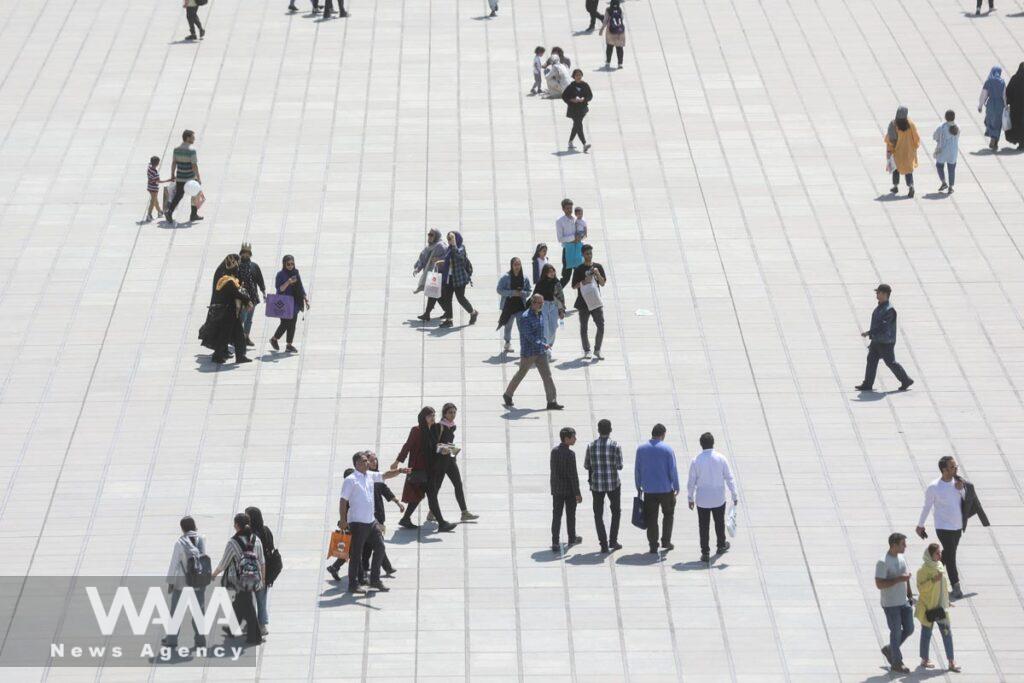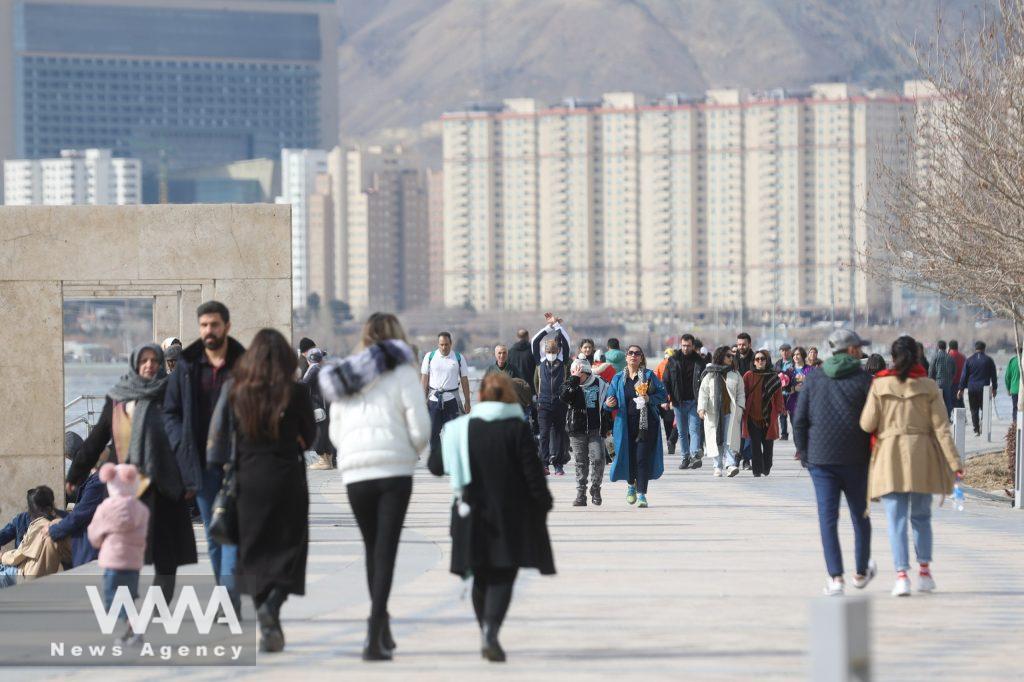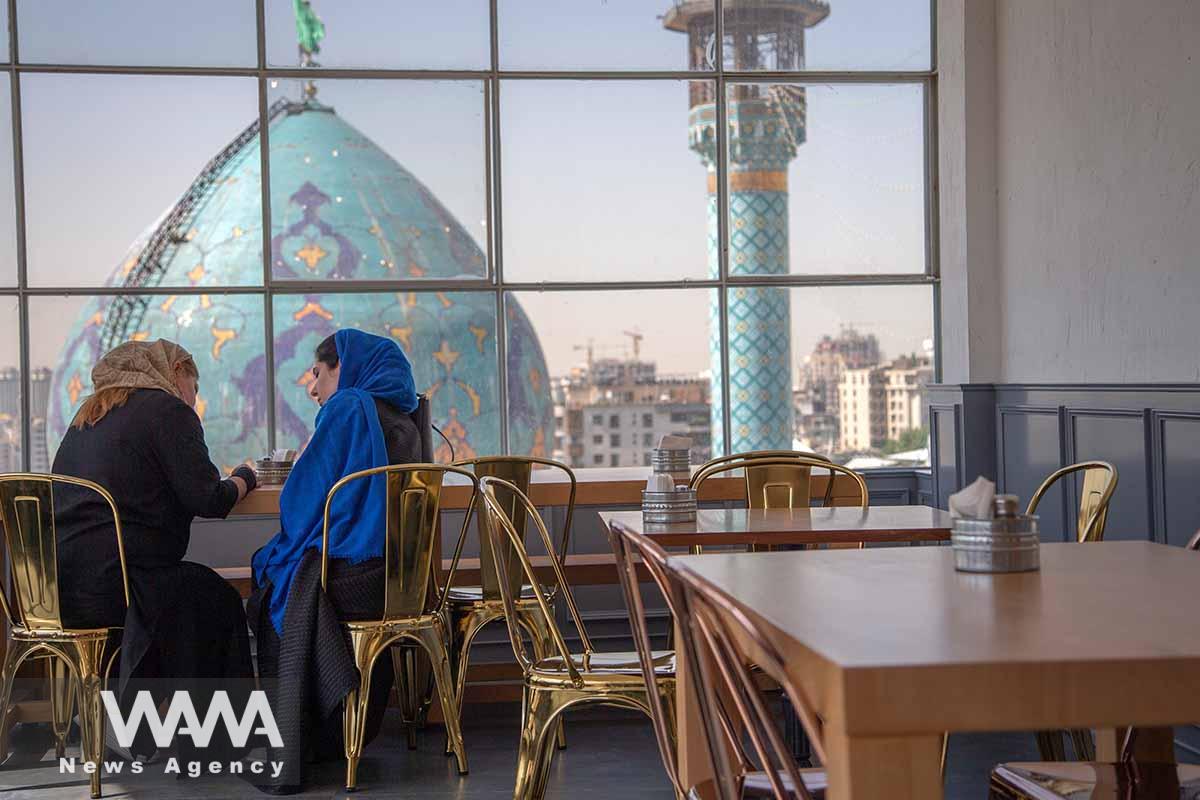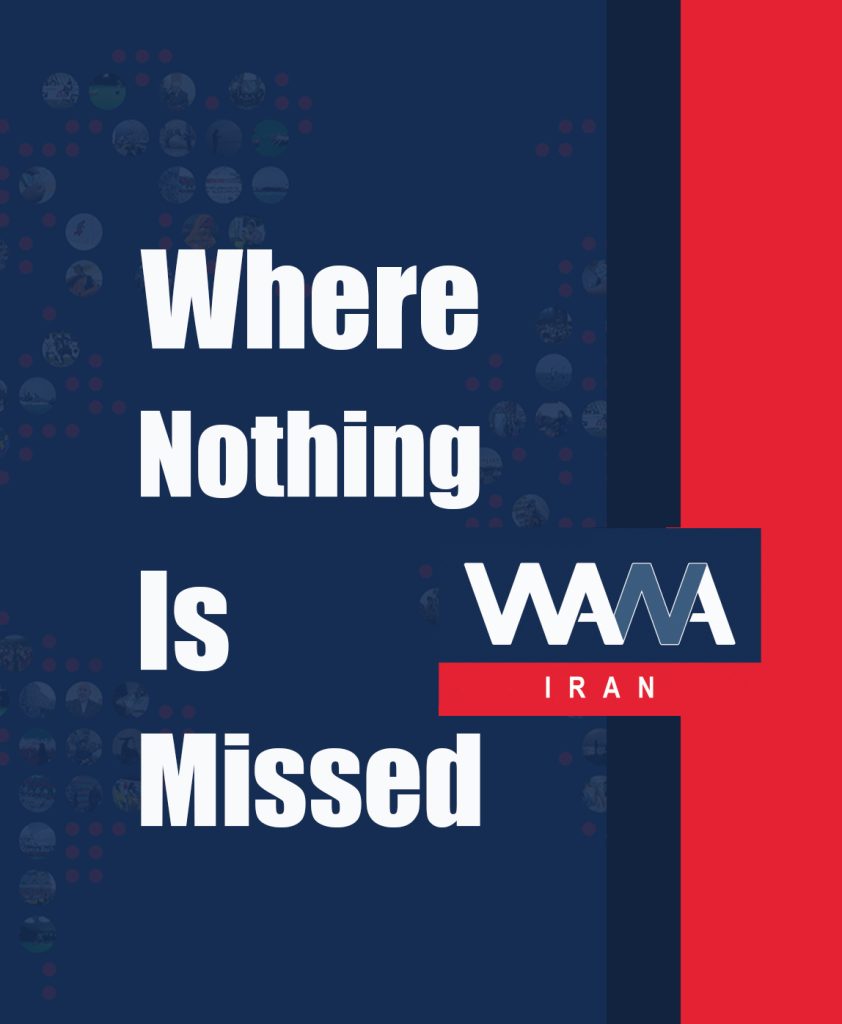Internet filtering in Iran, what are the reasons and justifications?
WANA (June 15) – In the first days of June 2023, Iran’s Interior Minister, Ahmad Vahidi, emphasized again, “Whenever foreign platform holders make commitments to the government and Ministry of Information and Communications Technology of Iran, a decision will be made about lifting filters on them.” He pointed out that, as per reports, they have yet to make any commitments.
Vahidi’s comments come as the Iranian government has banned certain social media apps, such as Instagram and WhatsApp, following the September 2022 protests in the country.
The Islamic Republic started restricting Western apps in 2009 following unrest over the then-presidential elections.
A new wave of anti-Iran measures began after Donald Trump became the U.S. president. Washington’s ‘maximum pressure’ campaign against Tehran mainly used ‘tough’ and ‘harsh’ economic sanctions.

Iranians visit the Bank Exhibition in Tehran, Iran, June 7, 2023. Majid Asgaripour/WANA (West Asia News Agency)
This policy aims to cause intense economic restrictions, enough to fuel chaos in Iran and subsequently topple the Islamic Republic. According to a senior U.S. intelligence official, these sanctions ‘will create hate and public discontent at the street level’, leading to the overthrow of the Iranian government. In this context, the Internet and social media platforms have been referred to as ‘crucial to bringing about regime change in Iran.’
The first series of protests from December 2017 to January 2018, the initial economic protests and subsequent riots, led to blocking Internet access from mobile networks in some areas of the country and a temporary ban on Instagram and Telegram. The government deemed it necessary to impose such restrictions to end the violent protests considered to be mainly coordinated through the Internet and social networks. A few months later, it permanently banned Telegram as this platform refused to cooperate with Iran in removing channels breeding violence and terrorism. Again in 2019, Iran imposed nationwide internet restrictions during protests sparked by fuel price hikes.

Iranians visit the International Book Fair in Tehran, Iran, May 12, 2023. Majid Asgaripour/WANA (West Asia News Agency)
Presently, a new bill to regulate the Internet is being prepared by the lawmakers in the parliament, titled ‘Legislation to Protect Cyberspace Users, known as the “Protection Bill.” It seems that Iran’s current lenient policy may be subject to change as a consequence of the U.S. sanctions, which have deprived Iran of critical cooperation with global technology companies to enforce the rule of law and combat security threats and also as an outcome of how the United States has been using the Internet as a weapon to bring regime change in Iran.
The more the U.S. harms the Internet’s basic characteristics, such as accessibility and its global nature, the more Iran moves towards developing its own National Internet.
Iranians have installed new messaging applications like Bale and Rubika after telecommunications providers blocked foreign apps.
The homegrown internet network known as the National Information Network (NIN), which is around 60 percent completed, has been created to allow domestic platforms to operate independently. One platform already benefiting from the domestic network is Snapp!, an app similar to U.S. ride-hailing service Uber, which has 52 million users – more than half the country’s population.
It is worth mentioning that while the Iranian government has mainly filtered Dating, Social Network, and Entertainment categories, the United States has denied Iranian people access to over 60 percent of mobile apps due to sanctions.

An Iranian woman walks in a street amid the implementation of new hijab surveillance in Tehran, Iran, April 15, 2023. Majid Asgaripour/WANA (West Asia News Agency)
Most potential threats posed by the Internet from the viewpoint of the Iranian government are shared by all other countries. The most recent case is the banning of TikTok by the U.S. and some European governments over National Security threats, which is apparently justifiable for the West but not Iran.
Other than national security risks, FBI Director Chris Wray said in November that TikTok carries: “the possibility that the Chinese government could use to control data collection on millions of users or control the recommendation algorithm, which could be used for influence operations”. Here we see again the double standards of Western governments regarding their own benefits.
However, certain factors have intensified the extent of Internet filtering in the Islamic Republic, like the lack of cooperation of some international companies, Meta for example. Something which is not tolerated by any other country.
The constant existential threat to the Islamic Republic is another factor, mostly following the anti-Iran efforts by the West, massive propaganda of foreign Persian-speaking media outlets, foreign-backed political opposition, and terrorist groups, all working day and night to bring instability to the country.
Ayatollah Ali Khamenei, Iran’s Supreme Leader, has called the Internet ‘A blessing and a curse simultaneously,’ expressing the country’s most recent policy regarding the virtual space as one that is aimed at the ‘Development along with prevention of cultural and social harms.’

Chitgar Lake – Feb 2023 – Tehran – Iran – Majid Asgaripour / WANA News Agency













User comments